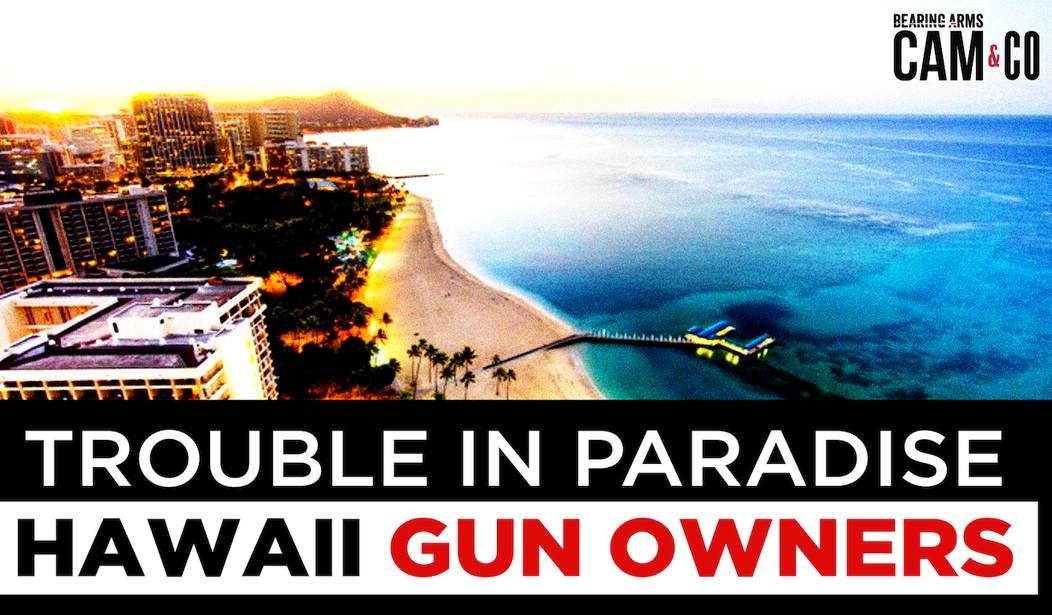For a brief period of time I’d allowed myself to hope that Hawaii County council members were going to buck the post-Bruen trend of Democrat-dominated jurisdictions imposing a host of unconstitutional restrictions on the right to carry. The county council’s first attempt at trying to impose a host of “sensitive places” didn’t go well for gun control advocates; dozens of residents showed up to object to the measure, and council members ended up pulling the bill from committee in order to revise it before bringing it back to the public.
Unfortunately, while the amended bill is slightly better than its original form, it still contains a number of “sensitive places” that aren’t likely to pass court muster and will result in law-abiding citizens being unable to protect themselves in many locations that are open to the public at large, including parks and playgrounds, houses of worship, all government buildings, and more.
At a hearing on Wednesday, the Hawaii County Council voted 7-1 in favor of their amended bill, which also includes bans on concealed carry on public transportation and all establishments in which alcohol is served. While council members did reject a number of proposals, including a de-facto ban on concealed carry on all private property, many in attendance weren’t happy with the finished product.
Resident Jason Blair said the U.S. Supreme Court has ruled that “gun-free zones” are unconstitutional and that what Bill 220 proposes are merely gun-free zones with a new name. He added that the bill is a violation of not only the Second Amendment, but also the First and the Fourth, and that the council members who support the bill will not have the county’s protection from a lawsuit regarding the bill, if it passes.
Puna resident Brian Ley said that licensed concealed carriers statistically commit fewer crimes than law enforcement officers, and that drunk driving kills many more people than firearms, particularly in Hawaii.
“If you want to do something about public safety, you should do something about drunk drivers, you should do something about the fentanyl being pushed out there,” Ley said.
Blair’s not exactly right when he says that the Supreme Court has declared “gun-free zones” to be unconstitutional. What the Court actually said in Bruen is that attempts to turn all those “places where people typically congregate and where law-enforcement and other public-safety professionals are presumptively available” into gun-free zones is a ridiculous infringement on the right to bear arms.
It is true that people sometimes congregate in “sensitive places,” and it is likewise true that law enforcement professionals are usually presumptively available in those locations. But expanding the category of “sensitive places” simply to all places of public congregation that are not isolated from law enforcement defines the category of “sensitive places” far too broadly. Respondents’ argument would in effect exempt cities from the Second Amendment and would eviscerate the general right to publicly carry arms for self-defense…
The Court made it clear that sensitive places are the exception, not the rule, when it comes to the right to bear arms, but the Hawaii County Council, just like the legislature in New York, has tried to turn SCOTUS’s decision on its head; in essence banning concealed carry from all but a few locations deemed permissible.
The Hawaii County Council still has a chance to do the right thing here, but given that their revised bill was approved by a wide margin I doubt they’re going to make any more substantive changes before they give their final approval in two weeks. At the moment just 19 people in the county have been given their concealed carry licenses, but that’s still 19 potential plaintiffs who’ll have standing to sue over the new restrictions, and my guess is that it won’t be long before the county is faced with the daunting task of trying to defend their anti-gun ordinances in federal court.








Join the conversation as a VIP Member